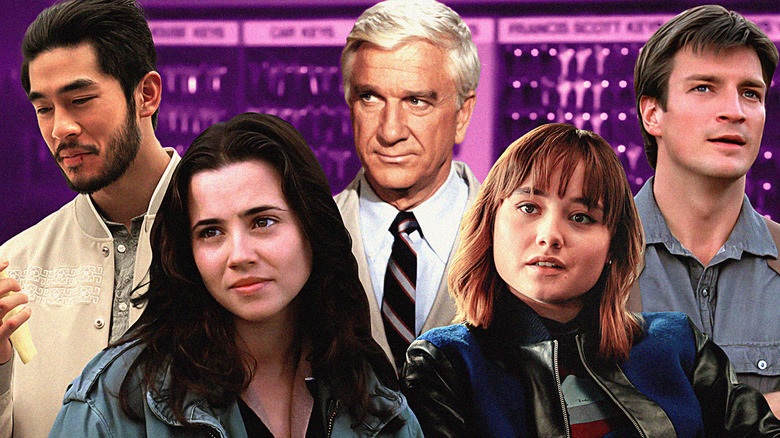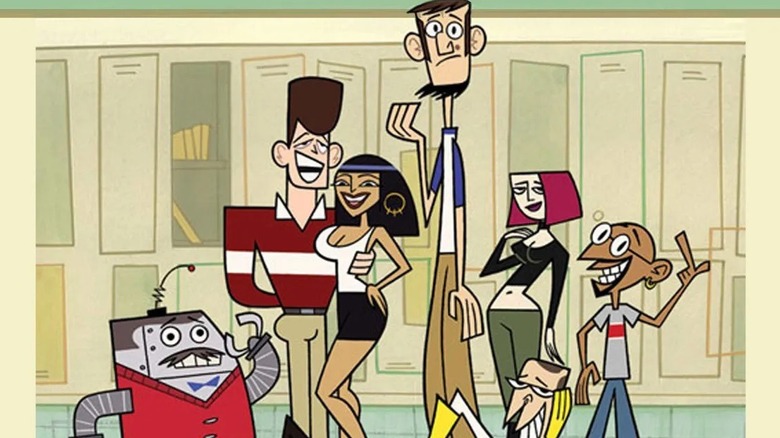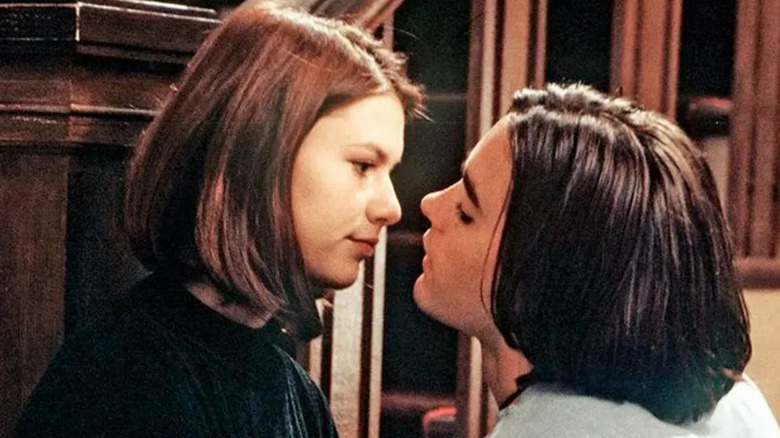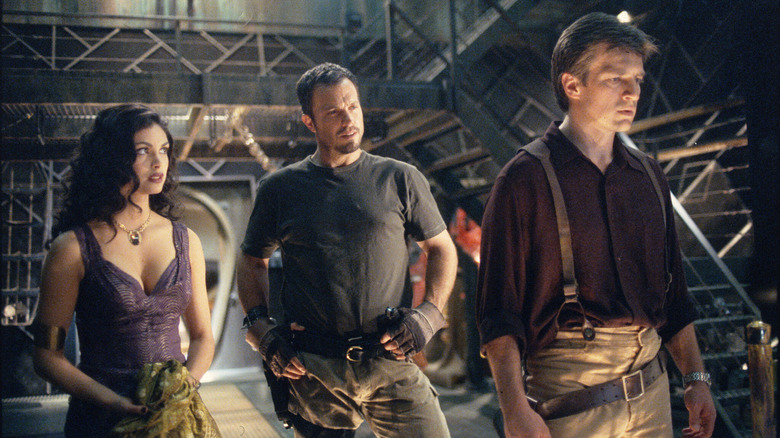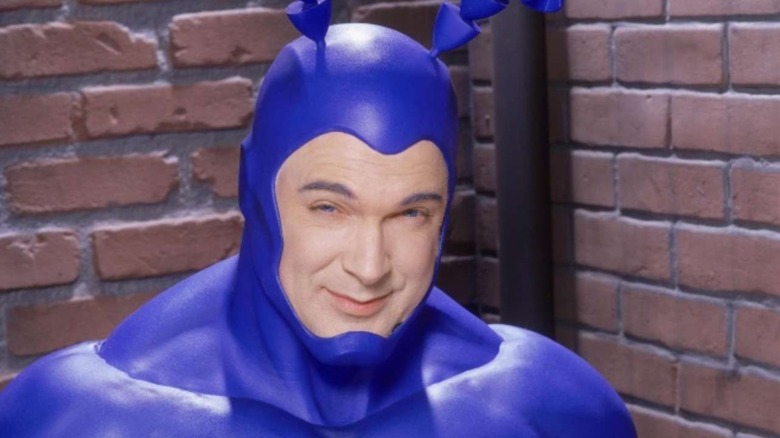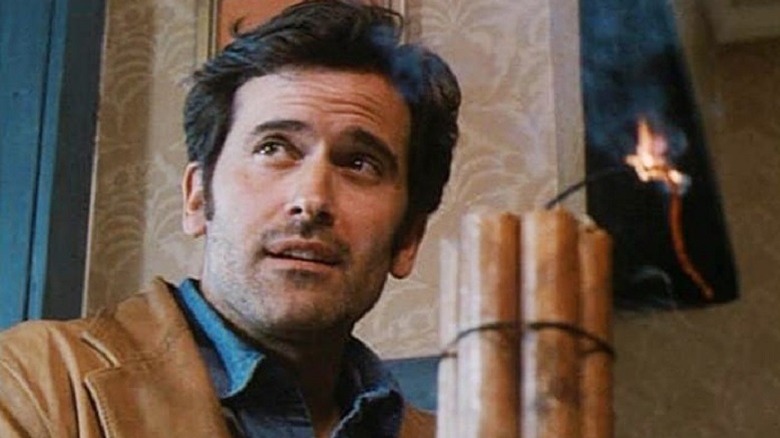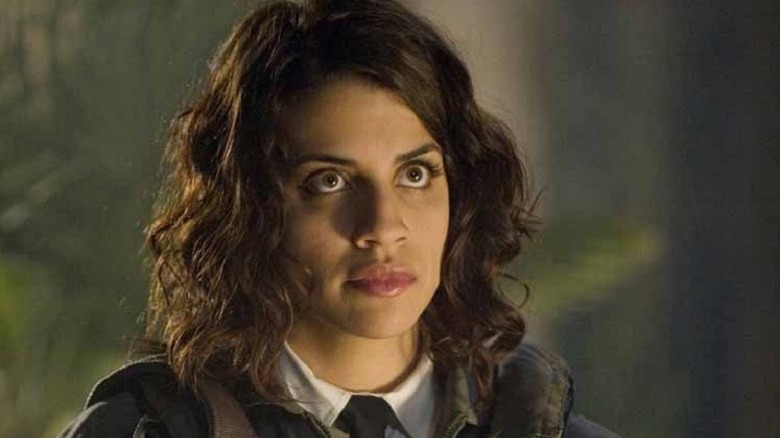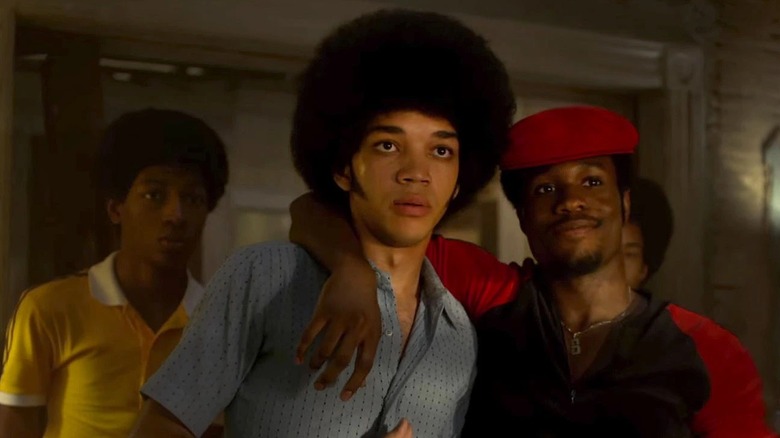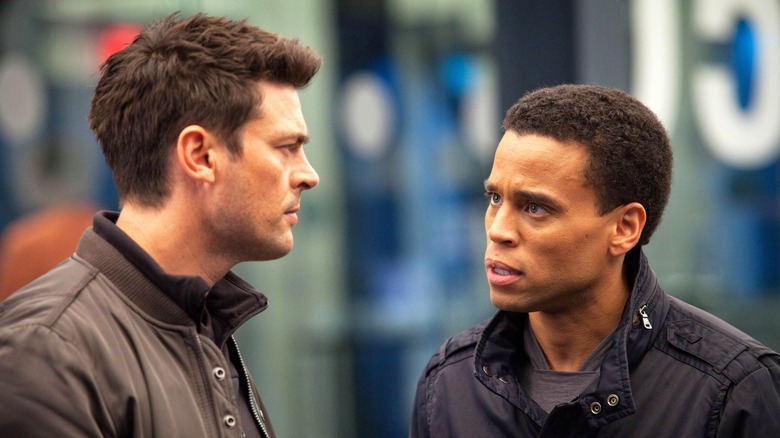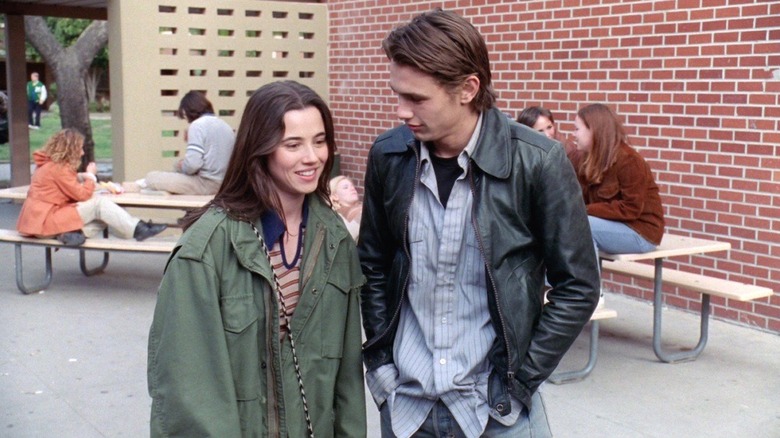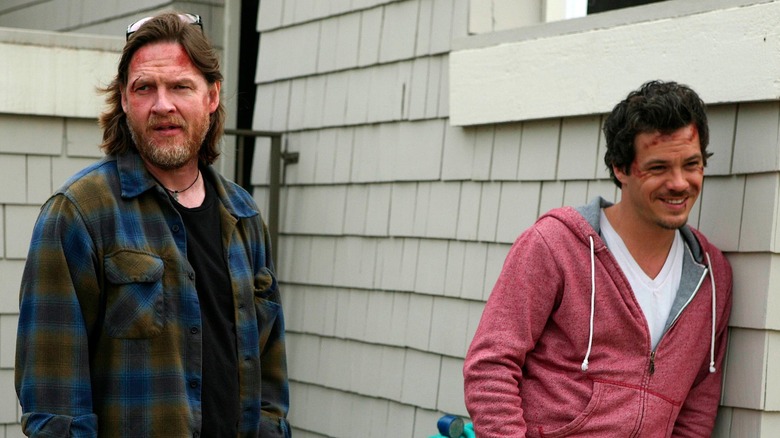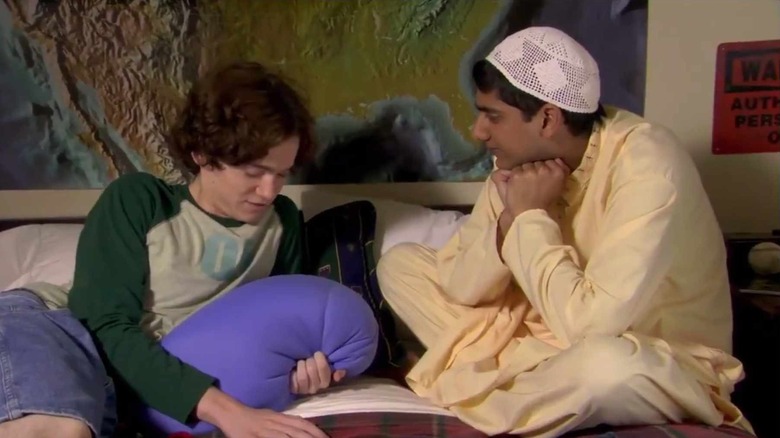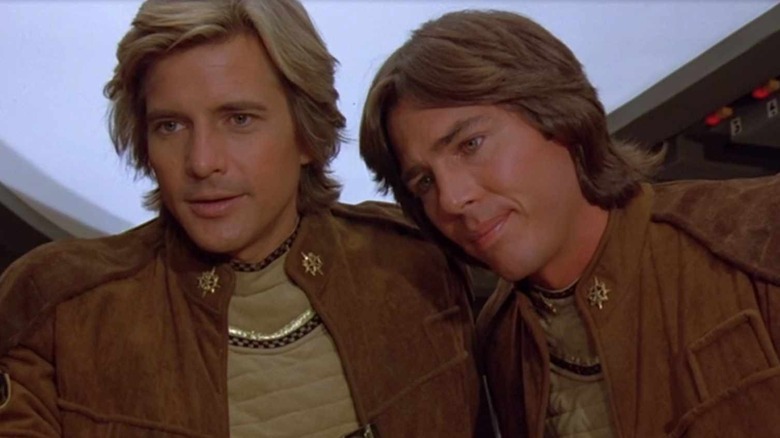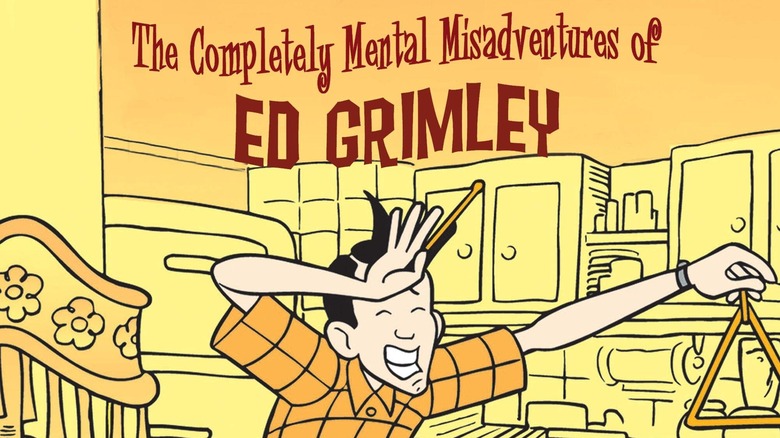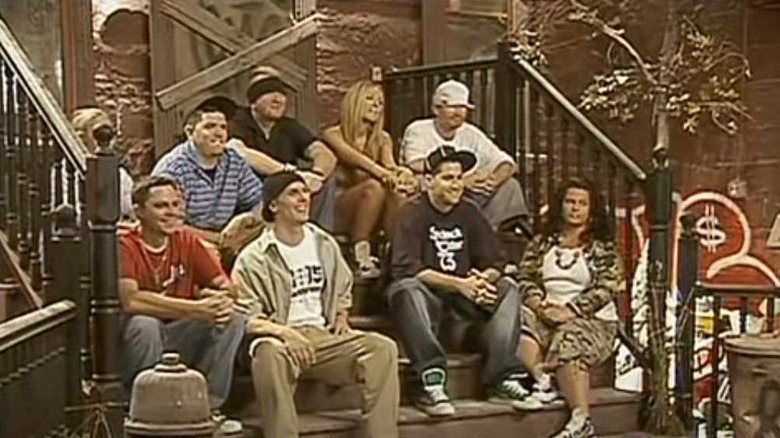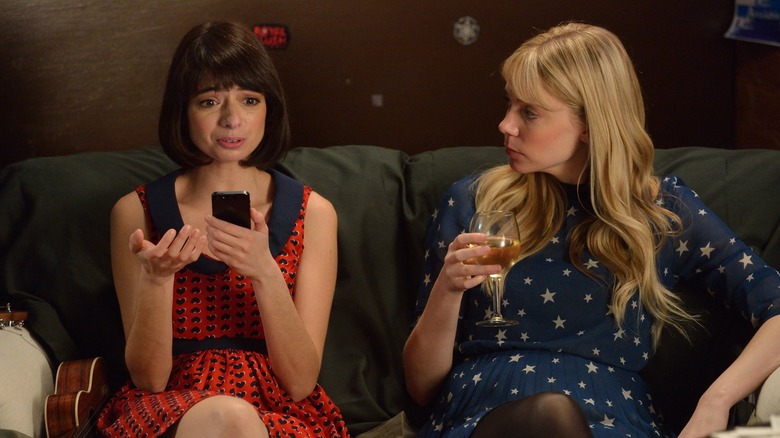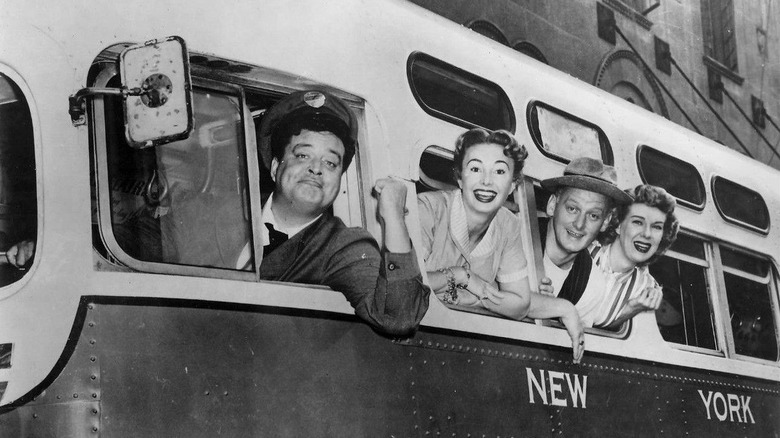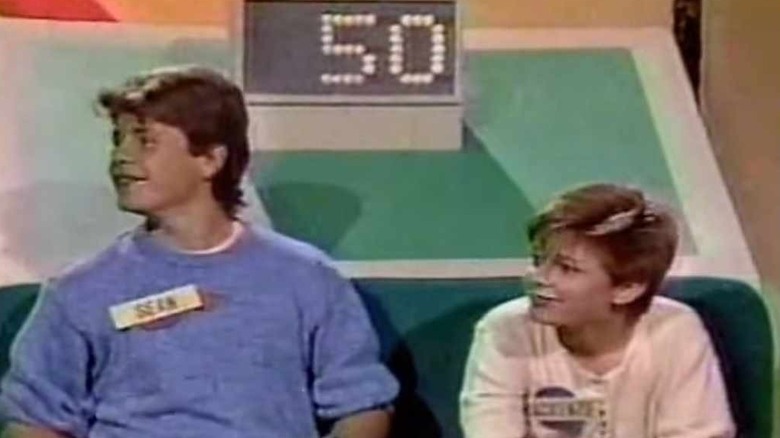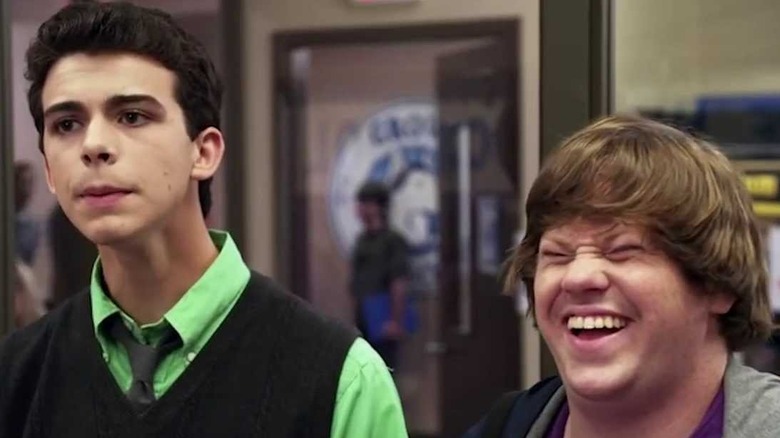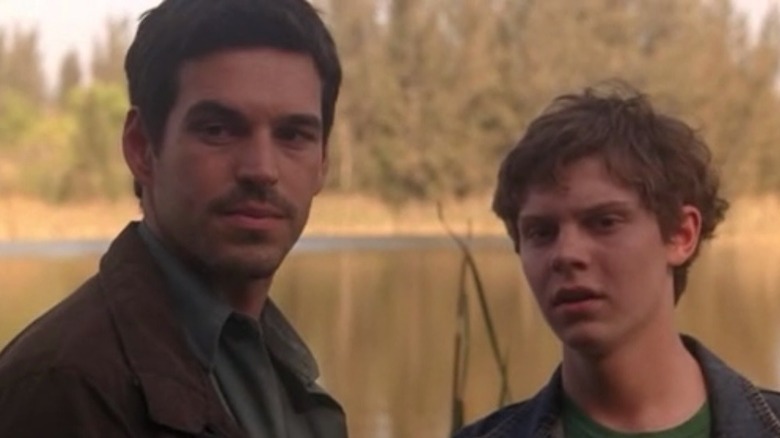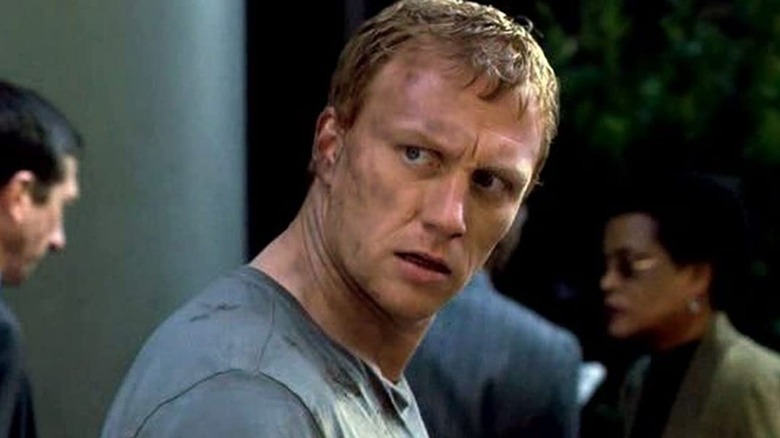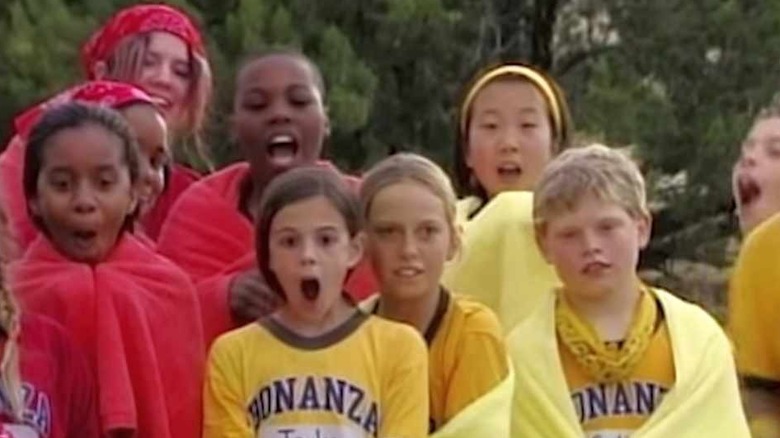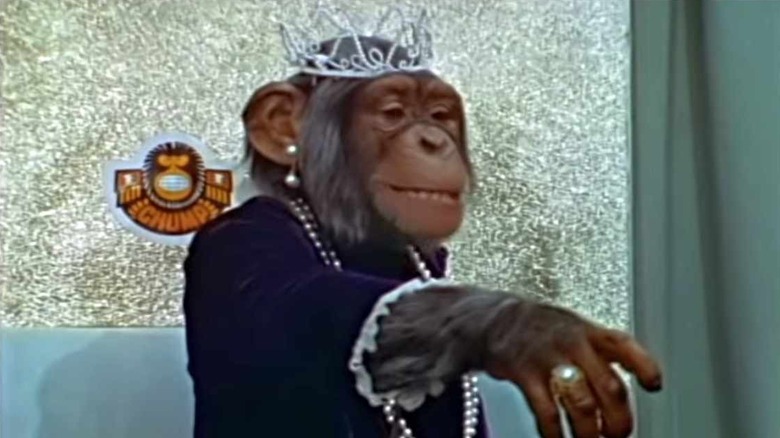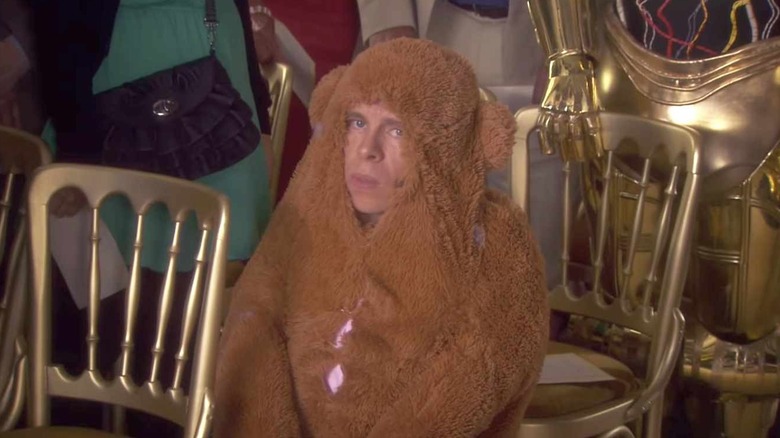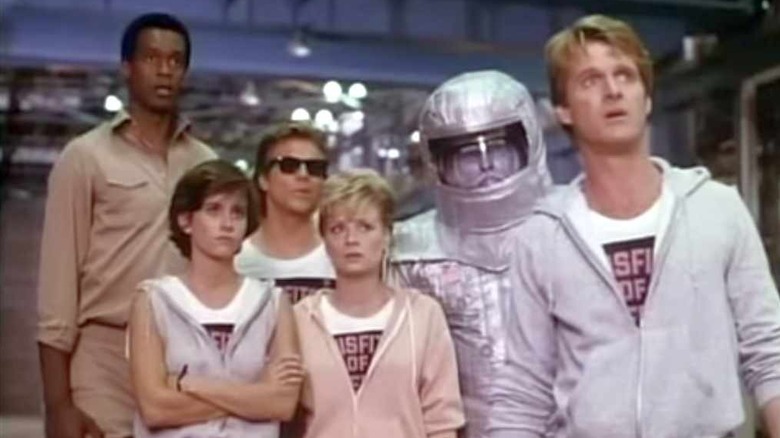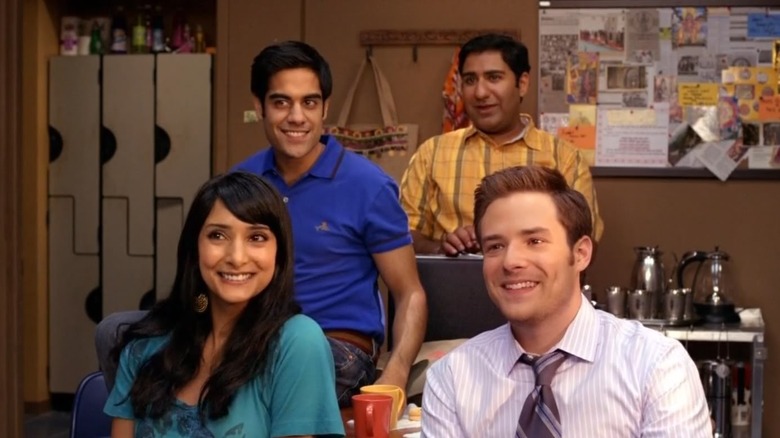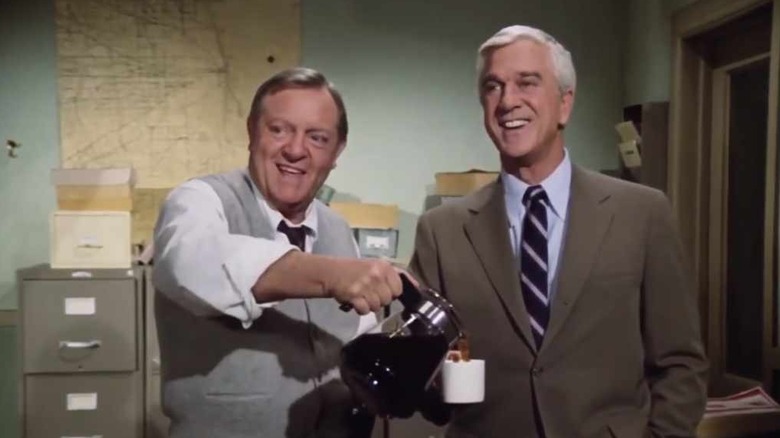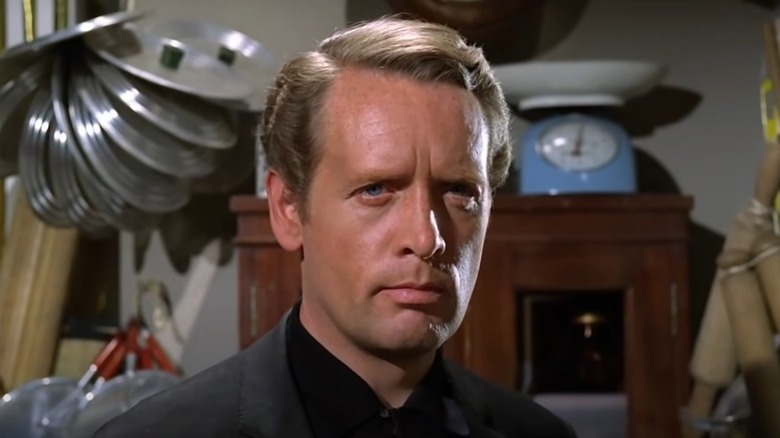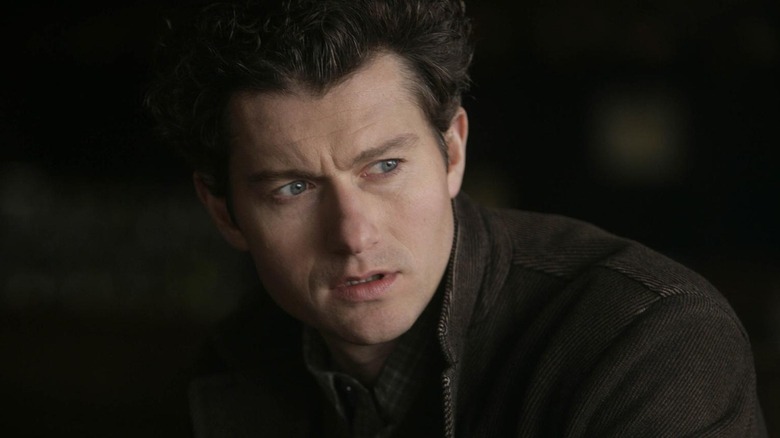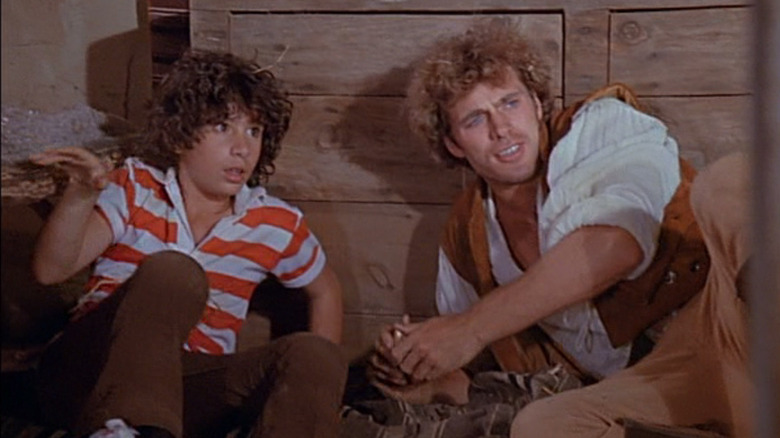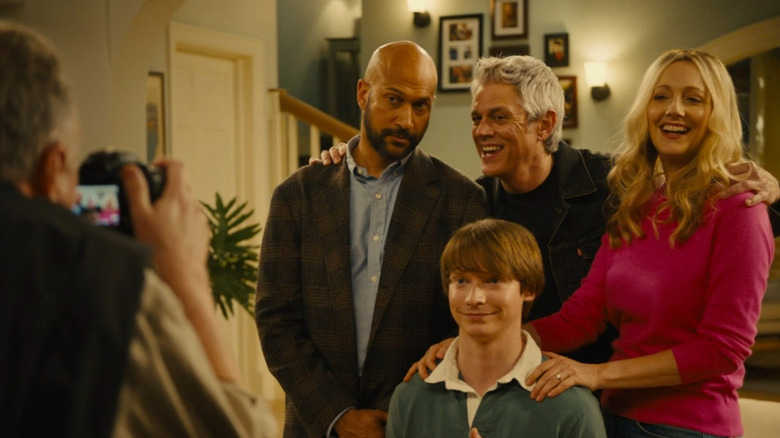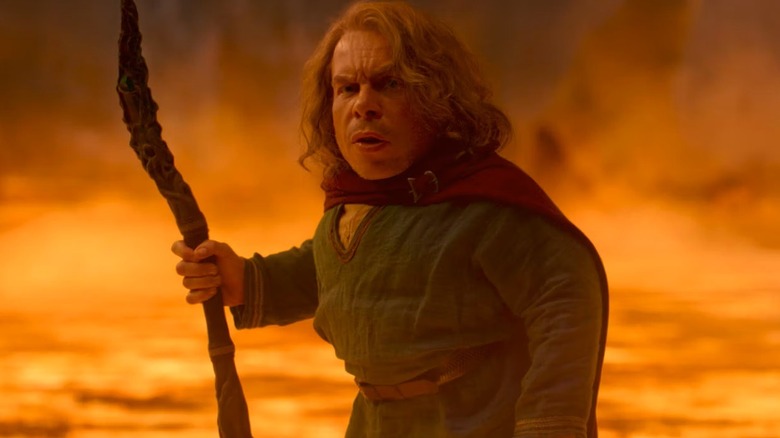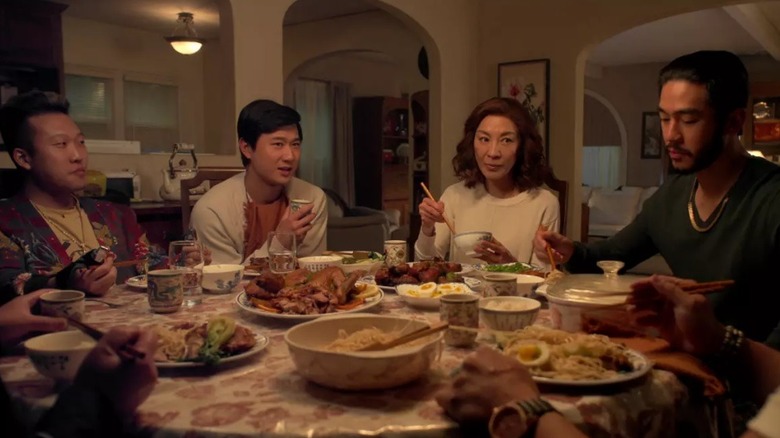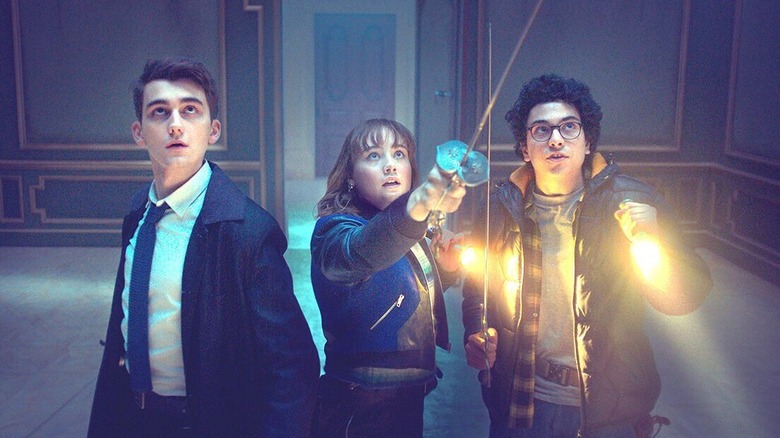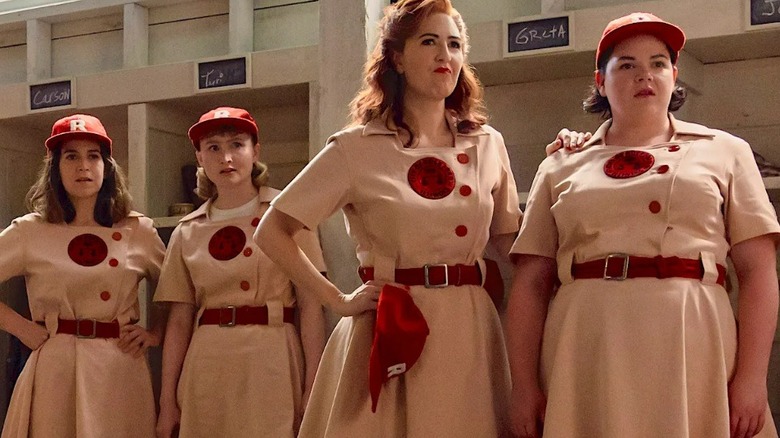Best One-Season TV Shows
Television is great for telling serialized stories over a long period of time, but not every TV series is meant to last. Whether it's because of stiff competition on other channels, upheaval at the network, or they were simply ahead of their time, some shows are simply canceled before they have a chance to reach their full potential.
None of the series on this list made it past a single season—and we still aren't over it. You might be lucky enough to find some of them still accessible in a forgotten corner of one streaming platform or another, while others — especially some of the most recent ones — have disappeared forever. Either way, television is worse off for not giving these shows a chance at two or more additional seasons.
Clone High
You might know Christopher Miller and Phil Lord for their work on the "21 Jump Street" movie or "The Lego Movie," but their partnership got its start on the MTV animated show Clone High, which followed clones of Abraham Lincoln, JFK, Cleopatra, and Gandhi (along with a host of others), each reinvented as a different teenage archetype as they try to manage hormones, love, and a secret government program with evil designs on the school.
The show's irreverent humor and use of real-life historical figures were bound to lead to controversy, and its depiction of Gandhi as a horny party animal led hundreds of Indian citizens to go on a hunger strike in protest. After the controversy, higher-ups at Viacom asked Miller and Lord to figure out strategies to replace the Gandhi character in the second season, although none were eventually accepted, and the show was ultimately canceled with no hope of renewal. Still, while "Clone High" ended too soon for many fans, Lord and Miller would go on to bigger and better things, and the show's single season remains a fascinating time capsule of early-2000s MTV animation.
My So-Called Life
Remember "Very Special Episodes?" They used to be a way for shows to strike up a dialogue about serious social issues like racism or drug-dealing, all of which would inevitably be wrapped up by the closing credits. Television gradually moved away from this graceless storytelling style — and some of the credit for that is absolutely owed to "My So-Called Life."
Following Angela Chase (Claire Danes) and her friends as they dealt with real issues like homophobia and abuse, the show's depiction of teenage life was genuinely groundbreaking, and the dialogue and well-written characters established a unique depiction of a high schooler's search for identity. Danes' performance was (sometimes uncomfortably) familiar to high schoolers and former teenagers alike, and the show's unflinching look at the less-discussed aspects of adolescence was a critical hit.
Unfortunately, while the show was beloved by its fans, Claire Danes was ready to move on to new things by the end of the first season, and low ratings meant the show was unlikely to get a second year with or without its so-called lead. Still, the show's influence would reverberate through nearly every high school-set series that followed.
Firefly
When discussing shows canceled before their time, it's basically impossible to exclude "Firefly." The show's focus on science fiction adventures fused with Western sensibilities, combined with creator Joss Whedon's trademark dialogue, made a huge impact on fans — and they proved it with their now-legendary campaigns to save the series, which eventually resulted in a big-budget movie continuation via the 2005 film "Serenity."
Like any sci-fi series, elements of "Firefly" arguably haven't aged well, but it still remains a joy to see Zoe (Gina Torres) and Wash (Alan Tudyk) as one of the only functional couples on the show. They're as traumatized and cynical as the rest of the crew, but nonetheless refuse to let their past define them — just one reason the show's one-season voyage remains the focus of a devoted fanbase as well as the subject of persistent revival rumors.
The Tick
It's ridiculous that the original live-action "The Tick" lasted only one season. The madcap comedic stylings, along with Patrick Warburton's booming voice, have become almost inseparable from the DNA of modern comedies. While the show's run might've been short, it was definitely sweet, with a whole host of ridiculous allies and enemies menacing our favorite bulging, blue bug.
"The Tick" followed the eponymous addle-brained hero and his frustrated former accountant-turned-super-sidekick Arthur (David Burke), using a mix of "Seinfeld" humor and off-brand Justice League-type antics to introduce a host of ridiculous characters, including Batmanuel (no relation to Batman) and Captain Liberty.
Even just skimming the plot summaries of each episode is proof positive that this insectoid parody show deserved to make it through at least one more winter. Although it's great that Prime Video resurrected the property for a while with a reboot that was as good or perhaps even better than the original, without Warburton and the rest of the original cast on board, the original show's cancellation still feels like a missed opportunity.
The Adventures of Brisco County, Jr.
"Firefly" is probably most people's first pick for a Western sci-fi show that was canceled too early, but "The Adventures of Brisco County, Jr." might be even better. Starring the one and only Bruce Campbell as Brisco, the show mixed classic Western tropes like train robberies and corrupt juries with anachronistic technology like rockets and projectors.
Much of the charm came from Campbell's distinctive comic timing and everyman persona, but the scripts were surprisingly clever, with exciting set pieces and clever uses of futuristic gadgetry. The show was set in 1893, a full 100 years before its airing in 1993, which allowed for all sorts of "Futurama"-esque winking at popular culture filtered through the lens of classic genre trappings.
Campbell will always be generally better known for his work in the "Evil Dead" franchise, but anyone who loves his work there—or can simply appreciate a quirky good time—would be remiss if they ignored this cult classic.
The Middleman
Starring Natalie Morales in peak blasé straight-man form as Wendy Watson, the occasionally unwilling sidekick to the titular hero (Matt Keeslar) as they battle a host of ridiculous supervillains, "The Middleman" was a classic adventure show with a postmodern twist. The show jumped from genre to genre, each episode poking loving fun at James Bond spy fiction or zombie apocalypses, while also telling a surprisingly down-to-earth story about the difficulties of working a side job to pay for a creative endeavor whose success is never guaranteed.
While creator Javier Grillo-Marxuach would go on to notable success due to the "Hunger Games"-esque "The 100," there's rarely been a show that was so personable and sweet about its pop culture obsessions. Ultimately, the show was ill-served by its place on the ABC Family network — its themes were an odd fit for a network focusing on family-friendly dramas, and the show was axed. There was an eventual live cast reading of the final script, which was also adapted into a graphic novel, but for many fans, the difficult-to-find first season is the only souvenir left of this delightful show.
The Get Down
Baz Luhrmann's "The Get Down" was always going to be subject to scrutiny. Luhrmann is a love-him-or-hate-him director, and when you add in the massive price tag (supposedly averaging about $10 million per episode), and the difficult-to-define genre (is it a true reckoning of the birth of hip hop? A mythic retelling? A musical?), the show was destined to leave some viewers scratching their heads.
"The Get Down" tried to tell an unusual kind of magical realist story about the search for mythical records, and passionate musical performances that could convert foe to friend. Even when the show approached abstraction, its core trio of kids in the slums of New York brought an emotional reality that bedrocked the series.
Sadly, the show just never found enough of an audience. But it isn't all bad — the show's status as a Netflix original means that even though "The Get Down" was canceled, the entire run is still part of the service's lineup, just waiting for the right viewers to get hooked on its musical myth.
Almost Human
Karl Urban has had a tough time with science fiction — his performance as Dr. Leonard "Bones" McCoy in the rebooted "Star Trek" movies was beloved by fans, but felt underserved by the actual content. Even his underrated performance in the excellent "Dredd" movie couldn't seem to help the film become more than an underperforming cult classic. But "Almost Human" might be the the biggest tragedy in the sci-fi corner of his filmography.
A buddy-cop detective show taking place in a realistic world where human cops are partnered with synthetic androids and compelled to stop futuristic crimes, "Almost Human" was nothing new conceptually. The difference lay in the execution: robo-racist Kennex (Karl Urban) and self-conscious synthetic Dorian (Michael Ealy) had an easy chemistry, and with J.J. Abrams as a producer, the show hinted at a much bigger world. Unfortunately, it never had a chance to really explore its limits; as promising as its first season seemed, low ratings doomed the series to cancellation.
Freaks and Geeks
Many shows have taken place in high school, but none with the level of uncomfortable, frank honesty that fueled "Freaks and Geeks." Brought to viewers by a murderer's row of future famous comedians and writers (including Judd Apatow, Seth Rogen, Linda Cardellini, Jason Segel, and James Franco), it offered a unique depiction of adolescence — starring young actors that actually acted and looked like high schoolers and featuring the type of warts-and-all storylines that are usually passed over in regular television.
It's stunning to look back on the show and see the onscreen evolution of some of our favorite comedic creative talent, but arguably even more impressive is the timelessness of the stories and the way they're delivered. Although it was set in the early '80s, "Freaks and Geeks" remains eternal because of its willingness to openly acknowledge the awkward, acne-ridden side of the teenage odyssey. And although it resulted in the show's unjustly swift cancellation, it's hard not to admire creator Apatow's insistence on sticking with his creative vision — or Rogen's willingness, years later, to publicly confront the exec who pulled the plug.
Terriers
Buddy cop shows are a dime a dozen, but it's rare to see one with the charm, wit, and heart that elevated FX's "Terriers." Following the misadventures of alcoholic former police detective Hank Dolworth (Donal Logue) and reformed burglar Britt Pollack (Michael Raymond-James) as they try to make it as private investigators in San Diego, it was a classic neo-noir in the vein of "The Long Goodbye" and "L.A. Confidential."
Logue's never been as good as he was playing Dolworth, and Raymond-James is perfect as his good-natured partner with a dirty past. The show could go to some very dark places, but the Dolworth and Pollack comedy duo kept it from ever approaching a grim slog. Ultimately, its biggest weakness was an ad campaign that didn't know how to sell the show's subtle charms (the network's head of marketing was forced to argue against the idea that the trailers made it seem like a show about dogfighting).
Viewers who did tune in got a tightly-written group of episodes that manage to balance long-running plots about wealthy sociopaths against shorter stories about criminals struggling to bury the hatchet (occasionally literally). While it's a shame that any great show is canceled before its second season, we're just lucky to have had "Terriers" at all.
Aliens in America
Pulling from their own awkward high school experiences of being newcomers and outsiders in small communities, David Guarascio and Moses Port created a show that also tackled "politics and the giant gap that exists between Americans and really the rest of the world, specifically the Muslim world," Guarascio told Patheos. Airing between 2007 and 2008, "Aliens in America" focused on social misfit Justin Tolchuck (Dan Byrd) and his wholesome yet quirky Wisconsin family. They take in a foreign exchange student from Pakistan (played by South African actor Adhir Kalyan) for a culture clash comedy about "peace, love, and understanding," as the show's theme song goes.
When Scott Patterson (who played patriarch Gary Tolchuck) sat down with IGN in 2008, he was full of praise for "Aliens in America," both for its humor and its message. He called it a "relevant show" for those times and one of the most "well done comedies on television right now." He added: "The beauty of the show is that it shows there's ignorance on both sides."
Critics were fond of it, too, even when the ratings weren't there to back it up. "'Aliens in America' is warm, funny, and smart," said the Boston Herald, which also predicted that the show wouldn't survive because it "routinely ranks so far down Nielsen Media Research's household rankings that it's practically a footnote." That prediction was correct, and, two years later, Variety was still "lamenting" the fact that The CW let this "gem" of a show go so soon.
Battlestar Galactica
With the success of "Star Wars" came imitators hoping to turn their own space dust into magic. Producer Glen A. Larson hired some people who worked on the George Lucas megahit (including John Dykstra, Ralph McQuarrie, and Joe Johnston) and tried to launch his own space opera with "Battlestar Galactica" on NBC in 1978. Larson told Science and Fantasy Film Classics magazine that the show (which Lucas sued) was "basically the concept of all the human cultures in space having evolved from a mother planet culture," adding, "We've got a truly rare opportunity to really open up that frontier and talk about what could happen out there in space."
The series takes place at the tail end of a long conflict between humans and Cylons, robots created by an extinct reptilian race. Humanity rallies behind the Galactica, a battlestar warship led by Commander Adama (Lorne Greene). Things got off to a bumpy start for Adama and company when the premiere was interrupted by President Jimmy Carter's announcement of the Camp David Accords.
The good fight for humanity raged on, but stiff competition from other networks did the show no favors. There were constant comparisons to "Star Wars," and there was only one winner on that front. As Ron Cowan from the Statesman Journal said of "Battlestar Galactica" at the time, the show "became more a soap opera than a space opera." The writing was on the wall and "Battlestar Galactica" flopped, with the show taken out of orbit the following season. Many people prefer the highly acclaimed '00s reboot, but viewers still have a soft spot for the original series.
The Completely Mental Misadventures of Ed Grimley
Out of all the amazing and zany characters Martin Short has breathed life into, few have encapsulated his talents better than the buttoned-up, triangle-haired, happy-go-lucky Ed Grimley. Short debuted the character at The Second City and developed him further on "SCTV" and "Saturday Night Live."
The character was popular, but Short wasn't interested in having Grimley on the big screen. Instead, he took Hanna-Barbera up on an offer to make him the star of a Saturday morning cartoon, "The Completely Mental Misadventures of Ed Grimley." He told The Post-Star that Grimley is "a real-life person acting like an animated character," so it only made sense. They modeled the cartoon after "The Adventures of Rocky and Bullwinkle and Friends," making it something that both kids and their parents could enjoy. Short went tall on talent, bringing Catherine O'Hara, Andrea Martin, Joe Flaherty, and Jonathan Winters on board to help with the absurdity.
The following season, "Ed Grimley" (along with "Fat Albert and the Cosby Kids," "Punky Brewster," and "Gummi Bears") got the axe, replaced by fellow "SCTV" alum John Candy and his own animated "Camp Candy" show. In 1991, Short bemoaned the decision in an interview with The Tampa Tribune. "It had reviews like we wrote them ourselves, and NBC couldn't take that show off fast enough," he said. "They thought it was too odd. If I had done 'Ed Grimley, Boy Scout Leader,' it would be on today."
Ego Trip's The (White) Rapper Show
MC Serch (aka Michael Berrin) knows a thing or two about what it takes to be respected as a white rapper. In 2007, the former 3rd Bass member hosted "Ego Trip's The (White) Rapper Show" on VH1. Serch told The Virginian-Pilot that the competitive series was a "social experiment" of sorts, a show that mixed "'Survivor,' hip-hop, 'Jeopardy,' racial tension, political views, and 'Seinfeld'" into one.
Hopeful contestants — with stage names such as $hamrock, Jus Rhyme, Persia, G-Child, and 100 Proof — lived in the Bronx and tried to prove their worth to win $100,000. They got to work with hip-hop royalty like Kurtis Blow, Prince Paul, Kool Keith, Grandmaster Flash, and House of Pain members Danny Boy O'Connor and Erik Francis Schrody (aka Everlast).
The show opened eyes and mouths (with laughter, most of the time) as 10 rappers battled it out. One contestant, Jon Boy, told The Virginian-Pilot: "I felt like the show was rap boot camp. It was really humbling, trying to educate us on where hip-hop came from." Serch was hopeful that a second season would get greenlit, he told the Detroit Free Press, adding that he would love to do "the white female Jewish rapper show" if he got the chance. A second season of "Ego Trip's The (White) Rapper Show" never materialized, but Serch worked on a new show called "Miss Rap Supreme" in 2008.
Garfunkel and Oates
Folk comedy duo Riki Lindhome and Kate Micucci are better known to fans as Garfunkel and Oates. They're sometimes referred to as the female Flight of the Conchords, which they don't mind. "We describe ourselves as that because it's an easy way to let people know what we do," Lindhome admitted to the Tampa Bay Times. Their naughty, sharp-tongued brand of musical humor led HBO to develop a pilot with them, but it never took flight. Instead, they landed at IFC with a self-titled show, all directed and executive produced by Fred Savage.
Playing exaggerated versions of themselves, Lindhome and Micucci set about trying to make it big in Hollywood. They actually had to tone down their act for the show, which dropped to rave reviews in 2014. "Because the show's TV-14, a lot of our dirtier material we were not able to use," Micucci told Under The Radar. Instead, they poked fun at everything from "Sesame Street" and "Saved by the Bell" to sports fans and, of course, themselves.
Joining in on the fun were the likes of Tig Notaro, Kevin Pollak, "Weird Al" Yankovic, Kumail Nanjiani, Ben Kingsley, and even John Oates, who found the duo to be "really clever and funny," he told Entertainment Weekly. News of the show's cancellation after a single season didn't go down well. As one AV Club headline put it: "IFC stops being cool, cancels 'Garfunkel And Oates.'"
The Honeymooners
It's hard to fathom that "The Honeymooners," one of the most beloved and revered sitcoms of all time, lasted just a single season. The show that CBS premiered on black and white TV sets in 1955 set the standard for laugh riots for decades to come, influencing everything from "The Flintstones" to "King of Queens." Originally a sketch that debuted on the Jackie Gleason variety show "Cavalcade of Stars" in 1951, the domestic antics of his bus driver character Ralph Kramden followed Gleason to his eponymous CBS show and would eventually become the basis for a half hour comedy.
While "The Honeymooners" lagged behind "The Perry Como Show" in the ratings, CBS was hungry for more. Alas, Gleason turned them down. "They wouldn't believe me when I said we couldn't come up with the same high quality of scripts for a second year," the star is quoted as saying in the book "Jackie Gleason: An Intimate Portrait of the Great One." He explained that he "wanted to go out on top" and he was aware that they would "run dry eventually."
"The Honeymooners" would live on in specials and other variety shows Gleason would later star in, but nothing would compare to those 39 episodes. He was even nominated for an Emmy for his turn in the show. Did he ever regret not making more? "I think Gleason wishes he made 139 of them," co-star Art Carney told the Corsicana Daily Sun in 1959.
I'm Telling
One of the best game shows ever made for kids has been mostly forgotten, but for a single season on Saturday mornings between 1987 and 1988, NBC's "I'm Telling" was colorful fun for the whole family. Capitalizing on the popularity of Nickelodeon's "Double Dare," producer Haim Saban came up with the idea. He told the Los Angeles Times: "We were looking for creative ways to produce something different for children," especially since "there is such a glut in the animation market," and his show would cost "a third of what" a cartoon would.
The format of the show was similar to "The Newlywed Game" (prompting Chuck Barris to sue), but here it was siblings who would guess how the other would answer a revealing question, and the winning pair advanced to the final round: the Pick-A-Prize Arcade. Host Laurie Faso told the Detroit Free Press that the show was "not demeaning to kids," adding: "It's not educational, but there's no violence in it and it's not going to hurt kids in any way."
There were a couple of celebrity episodes of "I'm Telling" (Sean Astin appeared alongside his brother), and there were also some that featured then-unknown talents, like Paul Walker, Lindsay Price, Giovanni Ribisi, and the voice of Fievel from "An American Tail," Phillip Glasser. If you can find it, then you can relive the magic of "I'm Telling" by scooping up a copy of the board game.
The Inbetweeners (US)
Importing a beloved British show is always a risky proposition, as for every "The Office" there are terrible American remakes of hit British shows you didn't even know existed. "Arrested Development" writer-producer Brad Copeland saw potential in the raunchy U.K. comedy "The Inbetweeners," a show about four teens who aren't as hip as they would like to be. MTV let Copeland give it a try and rolled out 12 episodes starting in 2012, some of which were directed by Taika Waititi.
Brett Gelman (best known for his turn as Murray Bauman in "Stranger Things" today) was on the cast, and there was even a cameo by Hulk Hogan. But fans of the original (including critics) didn't seem willing to give it a chance to stand on its own, and fresh eyes to the franchise perhaps didn't know what to make of it. Still, the U.S. version produced its own brand of laughter, especially when Zack Pearlman was involved.
Like the imported "Skins" before it, the "Inbetweeners" remake just never caught on in America, and it got the axe following an executive shakeup at MTV. Pearlman penned a goodbye on Tumblr, saying, "I will always be able to look back at and smile knowing that we did a fantastic job." According to Joe Thomas of the U.K. version, the American remake was doomed from the start. "They couldn't really swear very much because it was on network TV," he told Sunday Brunch (via NME). "And then you couldn't show them drinking and stuff and that's kind of the whole show."
Invasion
In 2005, the Globe and Mail pointed out that three major networks would "air new dramas about the United States under attack from outside forces" that fall. NBC's effort was "Surface," CBS had "Threshold," and ABC went with the unidentified frightening objects of "Invasion," which creator Shaun Cassidy described (via Today) as "a suspense thriller in the bright sunlight."
"Invasion" takes place in the Everglades of Florida (shot in the same place as those Budweiser frog commercials). The story unfolds after a devastating hurricane, when strange things start to occur. Left behind in the destruction and debris are two blended families who do everything they can to stay dry and keep their bodies from being snatched by the unknown menace lurking in the wetlands.
William Fichtner, who played the town's shifty sheriff, told the Lansing State Journal that they "had an amazing idea for who was behind it." They wanted to end Season 1 with the twist of the sheriff's presumed dead wife being the mastermind, but they "couldn't get it cast in time." Instead, there was a different, jarring cliffhanger that never got resolved. Despite desperate pleas from fans, who even flew a banner over ABC's headquarters, no one could undo the cancellation.
Journeyman
When HBO's acclaimed series "Rome" fell after two seasons, Scottish star Kevin McKidd felt "heat" on him to make the rounds on TV pilots. He told the VC Star that many were generic cop dramas, but he was taken by the script for one called "Journeyman," saying: "I thought it was different and interesting and really imaginative and cleverly written. That's all you can go by." This 2007 NBC series, created by Kevin Falls, centers around McKidd's Dan Vasser, a San Francisco journalist who travels back in time to right wrongs for others. He does this while balancing the affections of his current flame (Gretchen Egolf) and his former partner, who was presumed dead (Moon Bloodgood).
"Journeyman" was compared to both "The Time Traveller's Wife" and "Quantum Leap" in the reviews. Entertainment Weekly called it an "awesome show the whole world is ignoring, even though it's on right after 'Heroes.'" The lukewarm ratings and that year's writers strike became a deadly duo that kept the series from further journeys. However, Falls told Entertainment Weekly that he was able to round it out in the end to "answer quite a few questions so fans will get a feeling of closure."
Falls admitted to The Hollywood Reporter that he felt bad about upending McKidd's life, uprooting his family and moving them to the United States. However, he was "relieved to say it turned into a pot of gold. The next year he started his first of 10 seasons on 'Grey's Anatomy.' He also learned to surf."
Kid Nation
When CBS rolled out its unique and controversial reality series "Kid Nation" in 2007, there were a lot of concerned parents. The only adult to be found in the ghost town of Bonanza City, New Mexico was host Jonathan Karsh, who mainly stood on the sidelines and watched as 40 kids fended for themselves for 40 days. The idea was to form a community without descending into "Lord of the Flies" territory.
Even before the show premiered, bad press haunted "Kid Nation," largely due to the agreement parents signed which prevented them from suing even if their child died, possibly violating labor laws. Hollywood blogger and reporter Nikki Finke loudly pleaded for the network to "pull the plug" on the show, and advertisers were initially hesitant to promote their brands alongside it. Regardless, CBS stood by "Kid Nation," defending their care of the kids and even preparing for a second season. The show premiered to 9.4 million viewers, proving popular with youngsters, but the numbers had dipped by the end of the 13-episode run and Season 2 never materialized.
The great thing about "Kid Nation" is that it pushed its contestants to new limits, as executive producer Tom Forman told Variety. "The part that was amazing and controversial and groundbreaking was the social element and the documentary element as the kids figured it out," he said. Many of the kids have spoken fondly about their time on the show, which has become a fascinating TV relic.
Lancelot Link, Secret Chimp
The late writing duo Stan Burns and Mike Marmer wrote for comedy greats like Milton Berle, Steve Allen, The Smothers Brothers, and Carol Burnett, but perhaps their greatest unsung contribution to the medium of television was a show that saw them go completely ape. Marmer told the Fort Worth Star-Telegram that they had "the mad idea of making a comedy spy movie with no people, just chimps. We knew nothing about chimps or even whether such a project was possible." With help from animal trainer Frank Inn, they made a 10-minute demo film that audiences went bananas over, and ABC opened its Saturday morning cages to 1970's "The Lancelot Link, Secret Chimp Hour."
The show centered on the titular chimpanzee and his colleagues at A.P.E., Mata Hairi and Commander Darwin. They attempt to thwart the monkey business of C.H.U.M.P. and such rascally characters as Baron von Butcher. The madness of watching these dressed-to-the-nines chimps (who were actual Screen Actors Guild members and paid at least $56) drive motorcycles, ski, and play tennis was interspersed with small side gags called "Chimpees," groovy musical interludes by a band The Evolution Revolution, and even some "Looney Tunes" shorts.
While "Lancelot Link" technically ran for two seasons, the second was basically a condensed version of the first. It would also find a new generation of fans when it naturally followed reruns of "The Monkees" on Nick at Nite in the 1990s.
Life's Too Short
"Life's Too Short" is a hilarious one-season show from Ricky Gervais and Stephen Merchant. In a BBC press release, Gervais described the show as a "naturalist observational comedy, dealing with everyday problems, human foibles and social faux pas ... but with a dwarf." The lead role was played by Warwick Davis, who had been in dramatic films but had rarely been given the chance to show off his comedic side. Over seven episodes that started airing in 2011, Davis portrayed a fictionalized version of himself, alongside stars such as Johnny Depp, Liam Neeson, Sting, Helena Bonham Carter, and Steve Carell, while supported in clueless fashion by Gervais and Merchant.
The comedy was filled with many memorable moments (send-ups of "Brokeback Mountain" and "Basic Instinct" are standouts) and Gervais had a ball working with Davis. "I've never had so much fun directing anyone," he said. "A-listers, Hollywood, it doesn't matter." Davis told CNN that other little people appreciated it, saying that they "find that this character doesn't paint a rosy picture, but paints more of a real picture in a sense." While Gervais said a second season was on the cards, it turned into a special in which Davis was reunited with his "Willow" co-star Val Kilmer.
Misfits of Science
In the 1980s, NBC chief Brandon Tartikoff was willing to take a chance on shows that were a bit off-kilter. While one of his pet projects about a man who turns into animals ("Manimal") didn't hit the mark, it didn't deter him from trying similar things, like a 1985 show he really believed in: "Misfits of Science." It followed a crew of extraordinary people who drove around in an ice cream truck. There was a scientist, a shrinking man, an electrically charged Fonz-like guy, and a telekinetic teen. Dean Martin's son Dean Paul Martin was among the cast, as was a young Courteney Cox.
"[It's] hard to compare it with anything on the air right now," Martin told The Salt Lake Tribune at the time. "You could say it is really off-the-wall." The gang not only had to battle dastardly bad guys weekly but also the ratings superpower that was "Dallas." The lackluster special effects made the show cheesy yet endearing to young audiences, who embraced it during its original run.
Cox once told The Daily Herald that the cult favorite "was a great show and it had some great ideas." Although the plot seemed crazy at the time, that was before Marvel took over Hollywood. "It was about a bunch of people with superpowers, so maybe it was just ahead of its time," Cox told The Salt Lake Tribune in 2022.
Outsourced
NBC's "Outsourced" is a TV adaptation of a feature film of the same name, which follows a group of call center workers in India. When Ken Kwapis (best known for his work on "The Office") saw the movie, he asked the people behind it if he could pitch it as a show. "NBC really wanted it," he told The Hollywood Reporter. "My pitch was very simple: Whether it's a paper company in Scranton, Pa., or a call center in Mumbai, the petty foibles of office life are universal."
Clustered on a big night of NBC comedies alongside "The Office," "30 Rock," and "Community," "Outsourced" had a lot to live up to in terms of laughs. It didn't go down well with many critics, but those who liked it raved about it. "'Outsourced' is consistently funny, and I cannot thank the writers of the show enough for this," TV Equals said. "I find that when I watch comedies that they tend to be hit or miss, but 'Outsourced,' even in the weaker episodes, is still fun to watch." While some said the show reinforced negative stereotypes, "the humor ultimately comes from a place of affection," writer Geetika Lizardi wrote in a Los Angeles Times op-ed.
Police Squad!
Leslie Nielsen's "The Naked Gun" films are considered to be some of the greatest slapstick comedies of all time, but many people don't realize that his detective character Frank Drebin was in a TV show called "Police Squad!" first.
While promoting the hit movie "Airplane!," comedic masterminds Jim Abrahams and the Zucker brothers, David and Jerry, watched a police procedural show and "quickly decided that the genre was ripe for a parody," Abrahams told The Gazette. ABC gave the concept a six-episode trial, seeing it as a possible replacement for "Mork and Mindy." Nielsen needed little convincing to sign on. "I would have paid to be in this," he said (per Tulsa World). "I'm on the same wavelength with these guys."
Hilarious puns and double entendres were aplenty. The weekly guest star was usually killed off in the opening credits, and those who did survive (including Dr. Joyce Brothers and Tommy Lasorda) sought professional advice from an omniscient shoe shiner named Johnny (William Duell). "If ever there was a show that I thought was going to be a hit, this was it," Nielsen told the Star Tribune. Unfortunately, it was ahead of its time for television; audiences just "didn't know how to look at it," Nielsen said. One person who did get it was The Washington Post critic Tom Shales, who called it "arguably the best comedy show of the 1980s."
The Prisoner
Patrick McGoohan made his name starring in the series "Danger Man," released in the U.S. as "Secret Agent." When he tired of the show, he quit and moved onto what has become one of the most influential shows of the 1960s: "The Prisoner." This fascinating one-season British series follows an unnamed intelligence agent being held captive in a creepy village. The show was a metaphor for society at large, McGoohan said in a 1977 interview. "Your village may be different from other people's villages but we are all prisoners," he said.
The mind-bending series, which launched the catchphrase "be seeing you," was shot at the Welsh seaside resort of Portmeirion Village. It featured cryptic villagers decked out in mod fashions and the creepiest use of a white meteorologist balloon ever. It even captured the hearts of the Beatles, so much so that they let the show use "All You Need is Love" in an episode. This is "the only time a Beatles song has ever been licensed to a TV show," George Harrison's son Dhani told Wired.
Rubicon
The 2010 thriller series "Rubicon" is an overlooked gem. Speaking to The Baltimore Sun, writer Henry Bromell said that the show "was born out of the belief that we in the United States could wake up one day soon and find our democracy gone, not vanquished by an army, but by an almost invisible collusion between business and government. I know I'm not the only one who feels helpless and powerless in the face of this collusion."
The show debuted to two million viewers (which at the time was a record for AMC), but it was soon eclipsed by a little show called "The Walking Dead." The numbers didn't hold up, and on a channel where "Mad Men" and "Breaking Bad" made good, "Rubicon" became the walking dead itself.
Bromell promised (to the AV Club) that star James Badge Dale wouldn't "be doing as much staring and thinking next season," and actor Michael Cristofer told TV Overmind that he "would like to spend another year with" the enigmatic character he played, but it wasn't meant to be. Season 2 never happened, and a great show was lost. "Rubicon" was "ahead of its time," opined The New York Times when it revisited the show, while Vulture said "the time is right to rediscover" the series in 2019.
Voyagers!
Inspired by the Pirates of the Caribbean ride at Disneyland, the 1982 show "Voyagers!" is about a time traveler named Phineas Bogg (Jon-Erik Hexum) and a wise-beyond-his-years orphan named Jeffrey Jones (Meeno Peluce). It spelled out its premise in its opening credits: "We travel through time to help history along ... give it a push where it's needed."
While the show took some artistic liberties with actual historical events, it was all in the name of pleasing the target audience. "In this show we roll up our sleeves, dig right in and become part of history," Peluce told The Columbia Record. "It's every kid's fantasy to participate in the great events in time." Weaving through the ages, they cross paths (and sometimes swords) with Cleopatra, Abraham Lincoln, Lawrence of Arabia, Thomas Edison, Harry Houdini, Robin Hood, and Kublai Khan.
The Washington Post hailed "Voyagers!" as "a joy ride from start to finish," and the Citizens' Voice praised the show for its "attempts both to entertain and educate our children." Sadly, Hexum died following an on-set incident with a prop gun in 1984. This meant that a second season of "Voyagers!" could never happen, even if the network hadn't already pulled the plug on account of the show struggling against "60 Minutes," which aired at the same time. It remains an '80s time capsule, one that is definitely worth digging up.
Reboot
A few years into the reboot era, we inevitably started to see movies and TV shows about reboots. That includes Hulu's 2023 series "Reboot," which was about the revival of a fictional TV show. In this case, it was "Step Right Up," which was said to have originally aired in the early 2000s but felt a bit more like something from about a decade earlier. Creator Steven Levitan was the perfect person to tackle "Reboot," having worked on sitcoms going back to the 1990s and eventually creating "Just Shoot Me!" and, most notably, "Modern Family."
The conflict on "Reboot" was twofold. Half of it was about the "Step Right Up" cast having to put aside drama old and new in order to play a happy TV family again. The other saw the creative power struggle between the show's original creator and his daughter, constantly clashing over whether to deliver a tried-and-true classic sitcom or inject a hipper, more self-aware edge to the proceedings.
The incredible cast included Keegan-Michael Key, Judy Greer, Calum Worthy, and a surprisingly great Johnny Knoxville as the sitcom family, with Paul Reiser and Rachel Bloom playing the father and daughter battling for control while also trying to mend their estranged relationship. It did well with critics and was often in the top 10 most watched shows across all streaming platforms — but for whatever reason, Hulu didn't see fit to renew "Reboot."
Willow
Not surprisingly, Disney+ has always thrown the bulk of its weight behind "Star Wars" and the Marvel Cinematic Universe when trying to build out its library of original series. But that doesn't mean they haven't taken a few swings in other areas, such as the 2022 series based on the classic fantasy adventure film "Willow." Picking up about 20 years since the ending of the 1988 movie, the series saw actor Warwick Davis return as the titular sorcerer and once again embark on a quest to defeat a great evil.
While Willow's main band of allies was primarily comprised of younger actors new to the franchise, a few others besides Davis returned to reprise their roles — including Joanne Whalley as now-queen Sorsha, Kevin Pollack as Rool, and Rick Overton as Franjean. Unfortunately, Val Kilmer had to be written out of the series at the last minute when his health prevented his return as Madmartigan, but Val's son Jack Kilmer voiced his father's fan favorite character in a few episodes. Praised for its skillful balancing of paying homage to the original while also forging a path as its own new adventure, "Willow" was initially only put on hiatus before Disney finally confirmed that it wouldn't be returning at all.
Even worse, just four months after its first season wrapped up, the show was part of a huge purge in which Disney completely deleted a bunch of Disney+ and Hulu originals from those services. So "Willow" not only didn't get a second season, but you can't even currently watch Season 1.
The Brothers Sun
Michelle Yeoh has always been awesome, but a lot of people tend to forget that fact until she shows up in a hugely popular, Oscar-sweeping movie like "Crouching Tiger, Hidden Dragon" or "Everything Everywhere All At Once." She was still basking in the glow of her historic 2023 best actress Oscar win for the latter when she appeared as one of the leads in Netflix's inventive action/dark comedy series "The Brothers Sun" in March 2024.
The series stars Yeoh as the matriarch of the Sun family, a seemingly mild-mannered Los Angeles clan who are soon revealed to actually be infamous gangsters from Taiwan. This comes as a shock to son Bruce (Sam Song Li), who up to that point had been kept in the dark about the truth of his family for his own protection. The show received high praise for both its action scenes as well as its sweet family dynamics, and for the cast that did such a wonderful job at selling both.
In this case, the main story of the sole season of "The Brothers Sun" was mostly wrapped up at the end of its tight eight episodes, with only a slight hint at a possible continuation thrown in just in case they were given a second season — which, ultimately, they were not.
Lockwood and Co.
It's easy to glaze over at yet another movie or TV series that comes with the "based on the popular young adult book series" line attached. But to do that with Netflix's "Lockwood and Co." was to miss out on something truly special, and a reminder of why shows based on YA novels are some of the best shows around when they're done correctly. The first — and sadly, only — season of "Lockwood and Co." largely followed the stories of the first two books in the series of the same name, imagining a world where only kids can see ghosts, so it's up to kids to fight them.
The teenage ghost hunters were the trio of Lucy (Ruby Stokes), George (Ali Hadji-Heshmati), and Anthony (Cameron Chapman), the last one carrying the Lockwood surname from which the series gets its title. Earning an impressive 94% on Rotten Tomatoes, "Lockwood and Co." was called "a fun-filled adventure carried off with sprightly charm" in the critics' consensus for the site.
Developed by Joe Cornish, one of the co-writers of "Ant-Man," that description and its attached praise shouldn't come as a huge surprise. But good reviews are rarely enough to get a streamer to keep a show going, and Netflix closed down "Lockwood and Co." without letting the series continue long enough to least adapt the remaining three books.
A League of Their Own
Movies that are adapted into TV shows are often a hit-or-miss affair, but it wouldn't be entirely fair to lump Prime Video's "A League of Their Own" into that camp, since both draw from real people and events. Like the beloved 1992 film, the 2022 TV series — not to be confused with the absolutely dreadful and largely-forgotten 1993 series — tells a version of the history of the All-American Girls Professional Baseball League. With so many men away fighting in World War II, someone needed to keep playing baseball, so they got women to play instead.
Also like the film, the TV series focused primarily on the Rockford Peaches, which were a real team in the AAGBPL. But while a family-friendly movie in 1992 wasn't willing to go too far into how many romantic relationships formed among the women in the league, or the way that racism made it difficult for women of color to play, the 2022 series fully dug into both of those territories.
Starring and co-created by Abbi Jacobson, "A League of Their Own" was critically acclaimed, and also won the 2023 GLAAD award for outstanding new TV series. It had already been renewed for a four-episode second season, but the 2023 Writers Guild strike delayed those plans, with Amazon eventually changing its mind and reversing the renewal.
